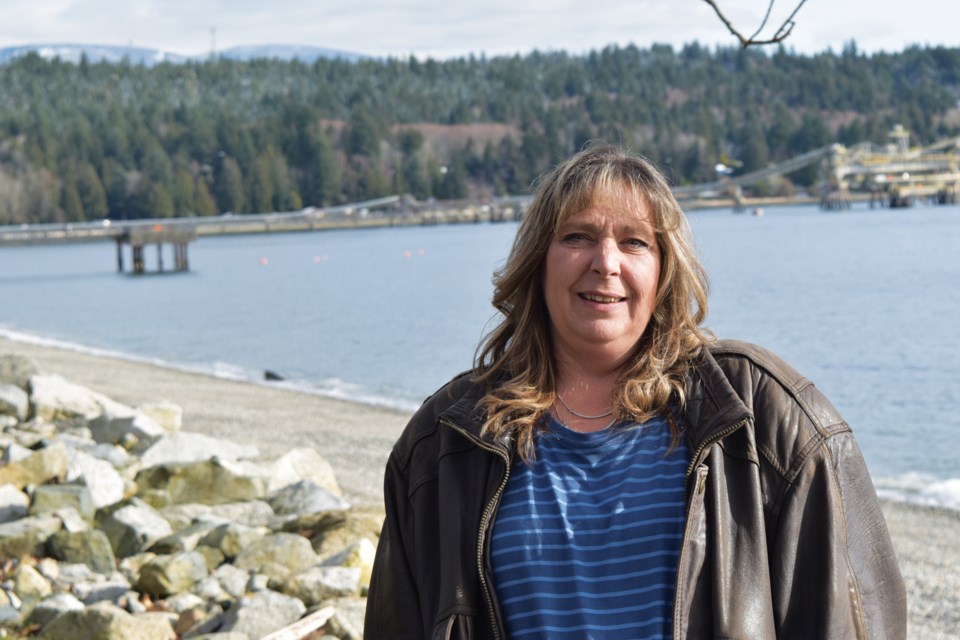The Sunshine Coast’s first peer support worker training class graduated on Feb. 19. The four-month course began with 12 students. Seven people made it to the exam and four completed the course in full.
“It was an amazing process as it always is. This is probably the tenth one that I’ve done, but the first one over on the Sunshine Coast,” said Amanda Schell, Peer Support Program Lead at Sumac Place in Gibsons, who facilitated the course. She said the dropout rate was higher than normal, likely because it was the first time the course was offered on the Coast, so students may have been less aware of the dedication required.
“It’s a long process, but we end up with the right people coming into the field,” she said.
Students attended half-day training sessions twice a week, and following the exam, participated in a 40-hour practicum. According to Schell, students are taught “the whole gamut of what it takes to work in the mental health field,” including communication skills, medications, side effects, diagnoses, concurrent disorders and ethics. Students completed their practicums at Community Mental Health & Addiction Services, Chapman House Group Home and Sumac Place Adult Mental Health Tertiary Care Facility.
Graduates of the Sea to Sky Peer/North Shore and Sunshine Coast Peer Support course can apply to any peer support positions offered through the B.C. health care system.
Schell is looking for funding to create two positions on the Sunshine Coast, one at the hospital and another for those who use services in the community. She said peer support workers are uniquely positioned to build trust with those who use mental health services.
If they are able to get funding, Schell plans to offer another course. “The demand in North Vancouver and Vancouver is tremendous. There’s always postings coming through… a lot of those positions are becoming unionized… it’s growing,” said Schell, adding that peer support could soon become accredited through the Canadian Mental Health Commission so that it can be standardized across Canada.
Jesse Schell, a graduate and son of Schell, did his training on the North Shore to avoid conflict of interest, and worked at facilities on the Coast for his practicum. He said he was inspired by “seeing the impacts and how peer support has been able to change other peoples’ lives with mental illnesses, to the point where some of them may not even have to use any of the resources for mental health whatsoever.” He hopes to eventually become a rehabilitation worker.



